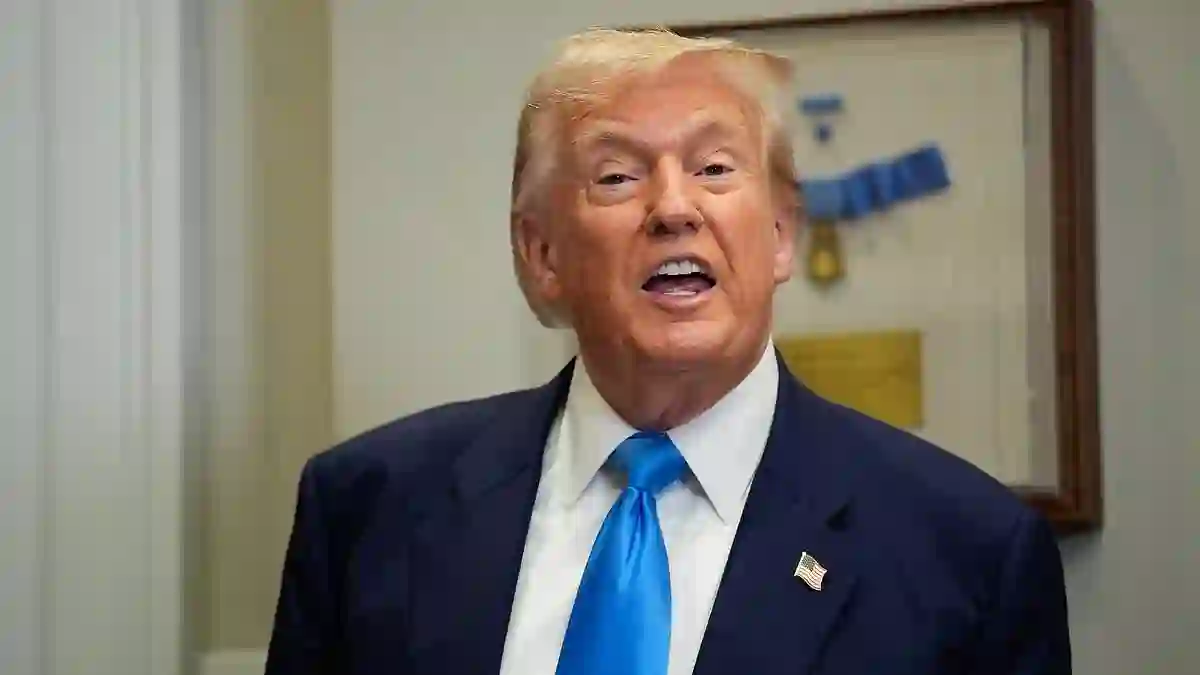Just when it seemed like trade talks between the U.S. and Canada were heading toward an agreement, everything changed.
A major political decision from Canadian Prime Minister Mark Carney has put the entire deal in jeopardy—and President Donald Trump isn’t hiding his frustration.
At the heart of the issue? Canada’s decision to formally recognize the State of Palestine.
Trump Warns Trade Deal Is Now at Risk
The U.S. and Canada were in the middle of finalizing a trade agreement to avoid a looming 35% tariff on Canadian goods, set to go into effect on August 1.
But Carney’s announcement on Wednesday that Canada will recognize Palestine in September has thrown a wrench into the negotiations.
Trump reacted immediately and publicly. Taking to his Truth Social platform, he wrote:
“Wow! Canada has just announced that it is backing statehood for Palestine.
That will make it very hard for us to make a Trade Deal with them. Oh Canada!!”
It was a blunt message that made it clear where the U.S. president stands—and what this could mean for Canada moving forward.
Carney’s Move Inspired by Gaza Crisis
According to Carney’s office, the trade talks had been productive until this unexpected shift in foreign policy.
The prime minister was reportedly moved after discussions with British Prime Minister Keir Starmer, who just a day earlier also announced plans to recognize Palestine.
Carney said the suffering in Gaza had become “intolerable” and that it was time for Canada to take a stand.
He laid out his plan clearly: Canada will formally support Palestinian statehood at the UN General Assembly this September.
Canada Ties Recognition to Strict Conditions
But Carney’s announcement wasn’t a blank check.
Canada’s recognition of a Palestinian state comes with conditions.
He emphasized that the Palestinian Authority must hold elections in 2026—and Hamas must be completely excluded from participating.
Demilitarization is also non-negotiable. Carney echoed Starmer’s demand that Hamas must release all hostages from the October 7, 2023, attack on Israel.
The goal, Carney explained, is to preserve a two-state solution, support peace, and ensure that humanitarian aid reaches those in need in Gaza.
Trump Doubles Down on Opposition to Palestinian Recognition
President Trump, on the other hand, remains firmly opposed.
A White House official told Reuters anonymously that Trump believes recognizing Palestine now would essentially reward Hamas.
“President Trump’s focus is on getting people fed [in Gaza],” the official said, “not on rewarding terrorism.”
Trump has faced growing international pressure to shift U.S. policy toward Palestinian recognition, especially with scenes of famine and devastation coming out of Gaza. Still, his stance hasn’t budged.
U.K. and France Take Bold Stances
Canada isn’t acting alone. The United Kingdom has also pledged to recognize Palestine this September unless Israel changes course.
That includes ending the Gaza conflict, halting settlement expansions in the West Bank, and committing to a two-state solution.
France, too, is stepping into the spotlight. President Emmanuel Macron recently announced that France will become the first major Western country to officially recognize Palestinian statehood.
Over 140 other nations, including several in Europe, have already taken similar steps.
Israel Pushes Back Hard
Israeli Prime Minister Benjamin Netanyahu has condemned these moves, especially the U.K.’s new policy direction.
He accused Prime Minister Starmer of “rewarding Hamas’s monstrous terrorism” and warned that such actions could backfire.
“A jihadist state on Israel’s border today will threaten Britain tomorrow,” Netanyahu declared. “Appeasement towards jihadist terrorists always fails.”
Israel’s Foreign Ministry backed Netanyahu’s stance, arguing that recognizing Palestine right now could hinder ceasefire efforts and delay the return of hostages.
What Happens Next?
With the deadline for U.S.-Canada trade talks fast approaching, and international tensions rising, it’s unclear what the immediate future holds.
Will Canada’s principled stand derail a major trade deal? Will the U.S. retaliate with tariffs? And how will the global balance shift as more Western countries move toward recognizing Palestine?
The coming weeks at the UN and in global capitals will likely be critical—for diplomacy, trade, and peace in the Middle East.
